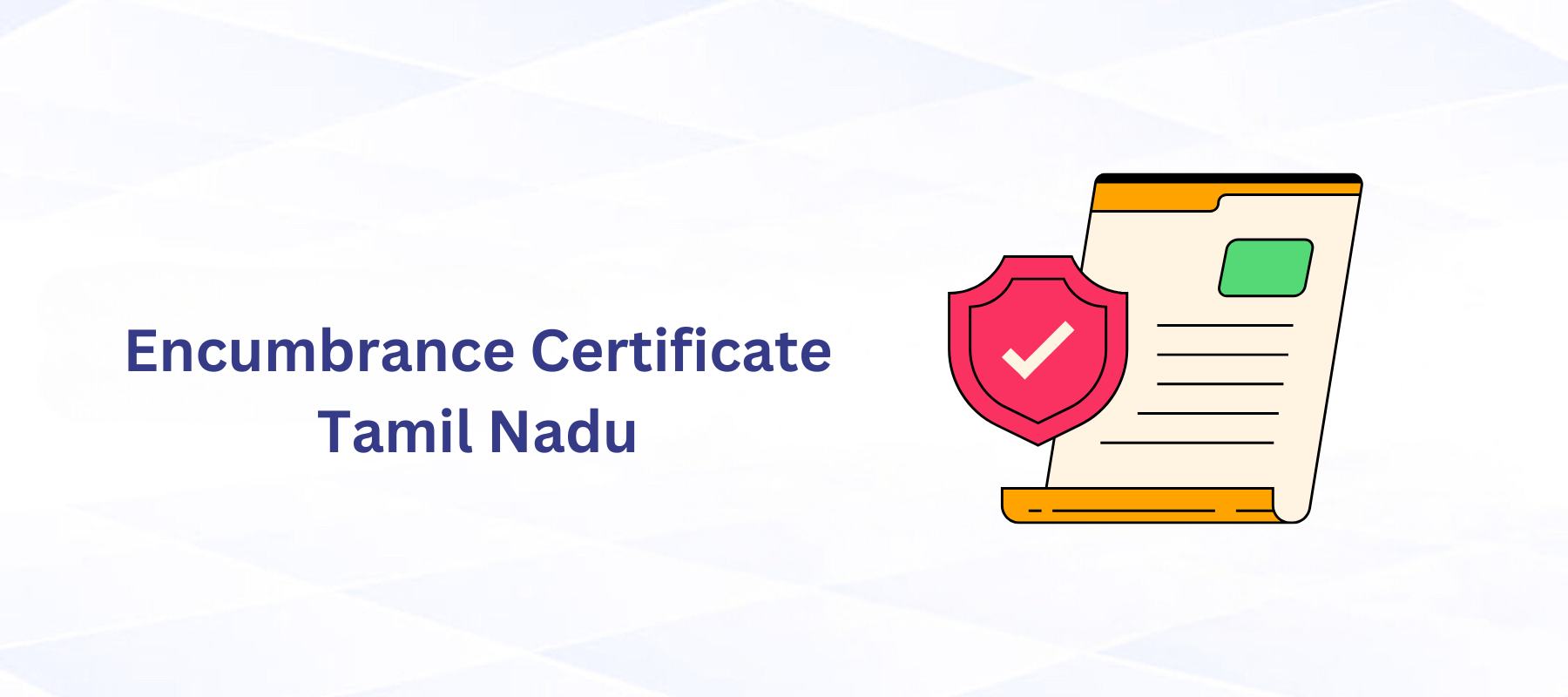Special Offers




Special Offers




27-Feb-2025 | Home Loan

An Encumbrance Certificate Tamil Nadu is a vital document for property buyers and sellers, ensuring that a property is free from legal or financial liabilities. Whether you are applying for a home loan, verifying property ownership, or planning a property transaction, an encumbrance certificate (EC) plays a crucial role. This guide provides a step-by-step breakdown of how to obtain an Encumbrance Certificate Tamil Nadu, its importance, required documents, and FAQs.
An Encumbrance Certificate (EC) is an official document issued by the Tamil Nadu government that certifies whether a property has any pending legal or financial dues. It records all registered property transactions, ensuring that the property is clear of any mortgage, loan, or legal dispute.
Proof of Ownership: Ensures that the property is legally registered in the owner's name.
Loan Approval Requirement: Essential for availing of home loans from lenders like Aavas Financiers.
Verification for Buyers: Helps in verifying that the property has no legal complications before purchasing.
Property Resale: Ensures a smooth resale process by verifying a clean property history.
To obtain an Encumbrance Certificate Tamil Nadu online through TNREGINET, follow these steps:
Visit TNREGINET Portal (https://tnreginet.gov.in).
Register as a New User by providing your details.
Login using your credentials.
Navigate to "Encumbrance Certificate" Section under e-Services.
Enter Property Details, such as district, zone, and survey number.
Select the Period for which you need the EC.
Pay the Application Fee online.
Download the EC once approved.
Property Details (Survey number, zone, district)
Aadhaar Card
Sale Deed (if applicable)
Property Tax Receipts
Address Proof
For those preferring an offline process, follow these steps:
Visit the Sub-Registrar Office (SRO) where the property is registered.
Collect and Fill Form 22 (Application for EC).
Submit the Application with necessary property documents.
Pay the Prescribed Fee at the counter.
Receive the EC within the stipulated time (usually 15-30 days).
Checking the EC status online is easy:
Go to TNREGINET website.
Click on "Encumbrance Certificate" under e-Services.
Enter Property Details (district, sub-registrar office, and survey number).
View and Download EC Report.
The Guideline Value is the government-defined property rate in Tamil Nadu. It determines the minimum selling price for properties.
Visit TNREGINET Portal.
Click on "Guideline Value Search".
Enter District and Street Name.
View the Property Value.
Registering a property in Tamil Nadu through TNREGINET involves:
Document Verification at the sub-registrar office.
Stamp Duty and Registration Fee Payment.
Submission of Sale Deed and Supporting Documents.
Biometric Verification and Signature Capture.
Receipt of Registration Certificate.
The EC remains valid until the next registered transaction on the property.
Online EC: Instantly (for digitally recorded transactions).
Offline EC: 15-30 days.
Yes, but you need to visit the Sub-Registrar Office in person.
Aavas Financiers offers tailored home loan solutions with attractive interest rates and easy documentation. If you're planning to buy a house in Tamil Nadu, you can avail:
Home Loan: For purchasing a new home.
Home Construction Loan: For building a new house.
Loan Against Property: Unlock property value for financial needs.
Home Improvement Loan: Renovate and upgrade your home.
Home Loan Balance Transfer: Transfer your existing loan to Aavas for better rates.
An Encumbrance Certificate Tamil Nadu is essential for secure property transactions. Whether you’re buying, selling, or applying for a home loan, ensure your property is legally sound. Aavas Financiers makes home ownership easy with customized loan solutions. Apply today and make your dream home a reality!
For home loans and property finance solutions, contact Aavas Financiers at 1800-20-888-20 or visit our official website.